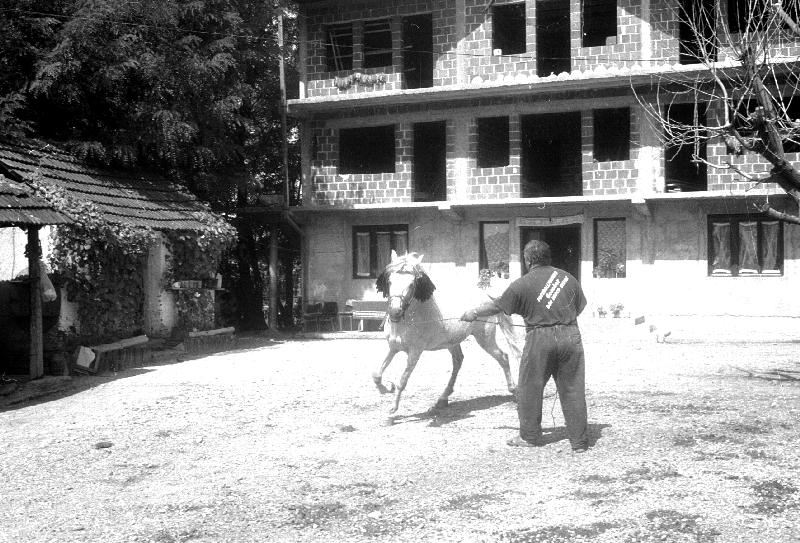
Ramiza is the oldest sister. Her
brothers and sisters speak of her affectionately, as the most helpless
of the whole family, illiterate, married to a good but very poor man who
collects carton in Macedonia, near Skopje, in the largest camp in the world,
Birimbej-Ilinden. Every now and then, Ramiza calls, her voice broken with
tears. She speaks of a great wind coming from Kosovo, where the bodies,
she says, lie unburied; this wind makes the Roma sick, the epidemic strikes
both children and grownups. And she is unable to understand why her relatives,
who live in rich Italy, do nothing to help her and her four children.
These are the most invisible Roma of all
Europe. Due to some strange juridical perversion, Macedonia has not granted
papers to about 5,000 Roma born elsewhere in Yugoslavia. Ramiza simply
does not exist.
I know little about the situation. They say
Macedonia will soon break up, especially since the elections were won by
an unlikely coalition between Albanian extremists and Macedonian nationalists.
I also know that the main resource of the Roma - street sales - has been
crushed by the government. They say that a country where the people are
free to sell shirts or food on the streets is not worthy of joining Europe.
Of course, Europe is based on the free market, but apparently only for
those who are already rich.
You are welcome to use this
article on condition that you put the whole text of "Collateral Lives"
on your website and provide a link to http://www.kelebekler.com/
|
